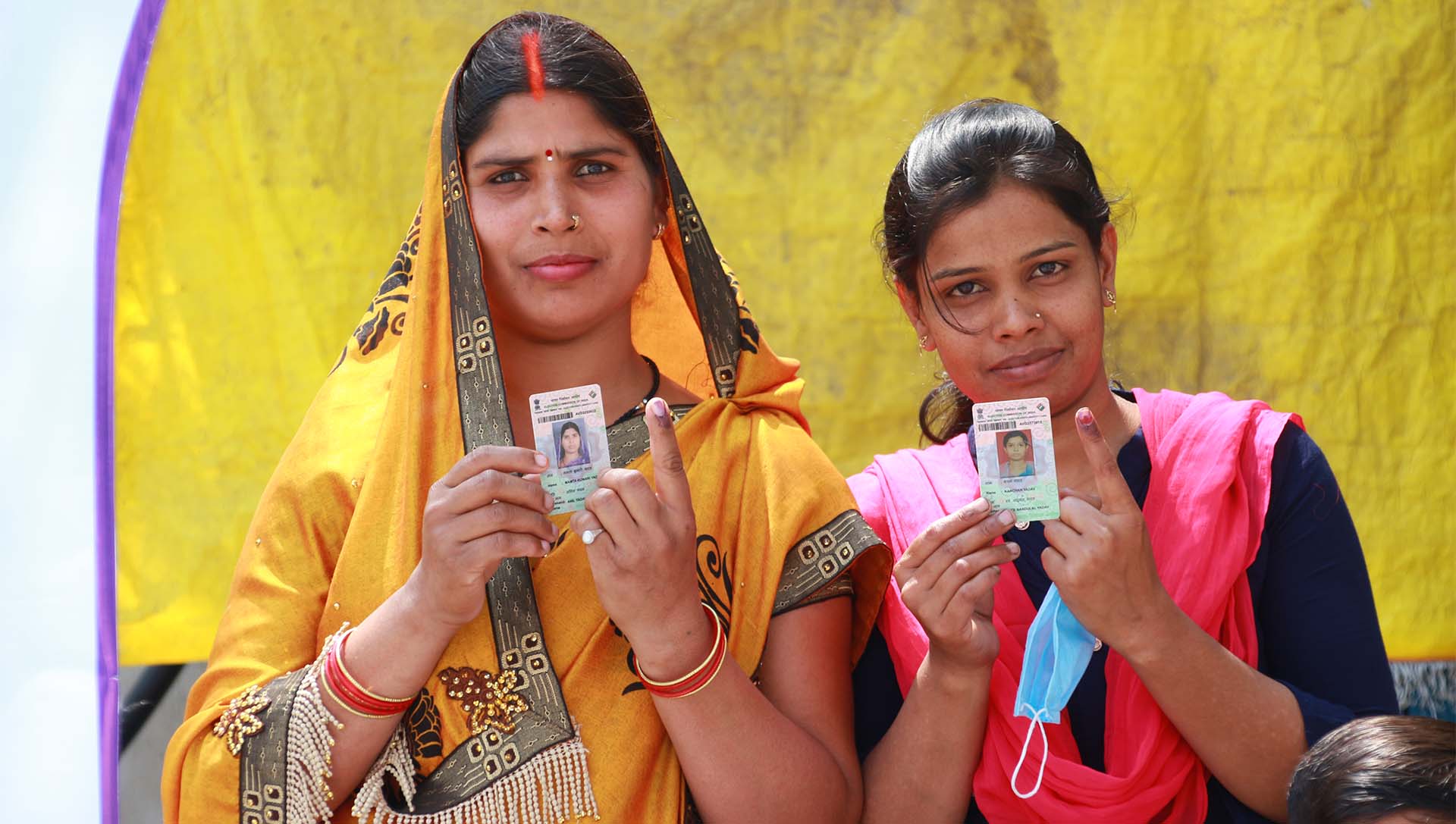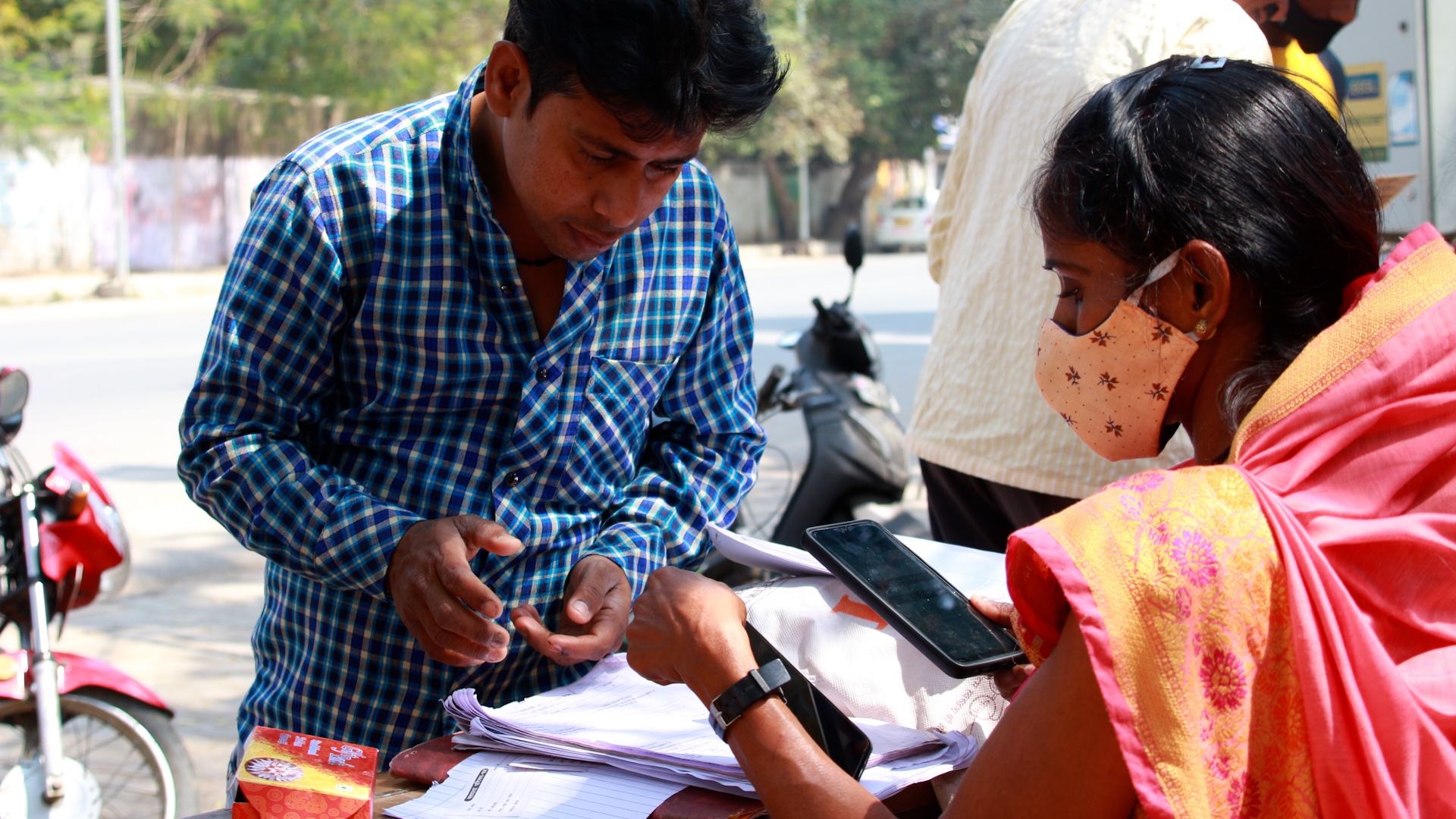

LUCKNOW: The fifth and sixth phases of the Uttar Pradesh assembly elections witnessed higher voter turnout of women than male voters, a close look at the polling data reveals, suggesting that BJP government’s women-centric schemes may lure them out to polling booths in the seventh phase on Monday as well.
A total of 118 assembly constituencies, part of eastern and central Uttar Pradesh, and Tarai region of the state, went to polls in the fifth and sixth phases of the elections. While voting was held in 61 assembly constituencies in the fifth phase, voters sealed the fate of candidates contesting on 57 seats in the sixth phase.
60.96 per cent of women electorate exercised their franchise as against 56.07 per cent men who voted in the fifth phase of the election, the polling data shows. In the sixth phase, the margin between women and men voters was even wider at 11.59 per cent. More than 62.6 per cent of the total eligible women voters cast their votes in this phase as compared to 51.03 per cent of the eligible male electorate.
The assembly polls will culminate on Monday (March 7) with voters of 54 assembly segments spanning across nine districts such as Varanasi, Jaunpur, Ghazipur, Azamgarh, Mau, Mirzapur, Chandauli, Sonbhadra and Sant Ravidas Nagar (Bhadohi), casting their votes.

It has been a riveting contest between the ruling Bharatiya Janata Party (BJP), its immediate rival Samajwadi Party, Bahujan Samaj Party (BSP) and other political parties. While BJP leadership including Chief Minister (CM) Adityanath is upbeat about winning the state again, former CM Akhilesh Yadav led Samajwadi Party is claiming to have dented the citadel of BJP and BSP-led by former CM Mayawati is also in the race to unsettle the SP applecart.
BJP’s strategy to win the successive election in India’s most populous and politically significant state revolved around welfarism and the party leadership in concert with the Prime Minister, BJP president JP Nadda, Home Minister Amit Shah, Defence Minister Rajnath Singh wooed women voters.
BJP’s focus area was to reach out to the women from the marginal communities through various welfare schemes; such as ‘free ration’ to each and every member of the family twice in a month. Free ration since the first wave of Covid-19 has been the biggest game changer for the BJP as feeding a state of over 24 core people is not an easy task.
“The Yogi government provided us free ration during the Covid pandemic when everything was shut and most of the people were unable to earn a livelihood. The government took care of the poor in hard times,” a woman, in her 40s, told The New Indian in Ayodhya last week.
Apart from the free ration scheme that established a chord with the rural and urban poor, Ujjwala Yojana, cash transfer, Pradhan Mantri Kisan Samman Nidhi, Ayushman Bharat, Pradhan Mantri Awas Yojana (PMAY) and Pradhan Mantri Shram Yogi Maandhan from the Centre appeared to have worked in favour of the ruling party.
The woman cited above further said: “Not only ration, the government is also providing free gas connection and has done an impressive job in improving the law and order situation. Unlike earlier governments, this government has cracked down on criminals, eve-teasers, and goons. Girls and women now feel safe.”
Poll managers of the BJP are convinced for their victory with women outnumbering men in the last two phases. They expect the same trend in the seventh phase.
BJP’s thrust was aimed at empowering women who run households. “It also worked in poverty alleviation coupled with toilets and almost round the clock power supply and improved law and order situation. BJP had managed to get a sizeable number of female votes in 2017 Uttar Pradesh elections. Women have become a formidable vote bank of the BJP”, say social scientists.
The decisions by Prime Minister Narendra Modi’s government to register houses built under PMAY in the name of women and issue gas connections in their names was connect well with the women especially from the lower strata of the society.
BJP’s strategy to reach out to women and further cements its base among upper castes and a section of Other Backward Castes (OBCs), is expanding the circle of beneficiaries, appeared to have helped the party in its bid to retain the government in Uttar Pradesh.
Electoral politics is all about numbers and none of the political parties can ignore a section of voters. It may be noted that female voters had outnumbered their male counterparts in 2017 assembly elections by quite a margin.
In an era when social media platforms help better access to education and create growing political awareness among the masses, no part can ill afford to ignore this powerful segment that has realised its importance in voice in the electoral politics. Nitish Kumar’s decision to reserve 35 per cent government jobs for women in Bihar and impose prohibition in the state helped him and the BJP to retain power in Bihar.
Congress led by Priyanka Gandhi tried to woo women voters by announcing 40 percent seats to women and launched a campaign “Ladki hu Lad Sakti hoo”. It however, failed to take off since Congress does not have a string base in the state where it has been out of power since 1990.
Akhilesh Yadav-led Samajwadi Party promised to provide 300 units of power free to every household in its bid to impress the women voters but it was too late in the day as BJP trumpeted its politics of welfarism in the form of several schemes launched by Yogi Adityanath government and the Centre.
Results of the fiercely contested Uttar Pradesh Assembly elections will be declared on March 10 and we shall know who reached the podium and who was placed second, third and so on.